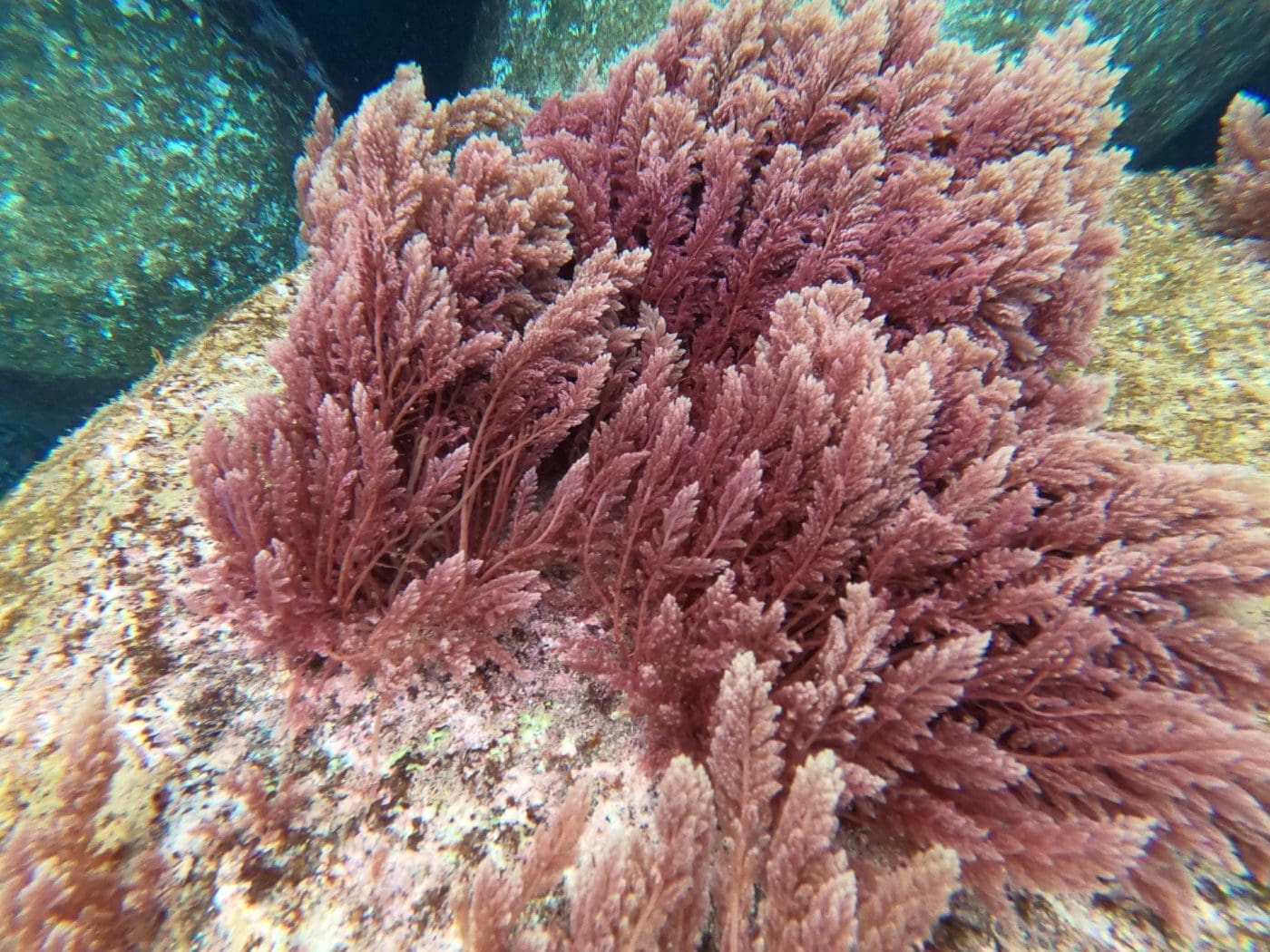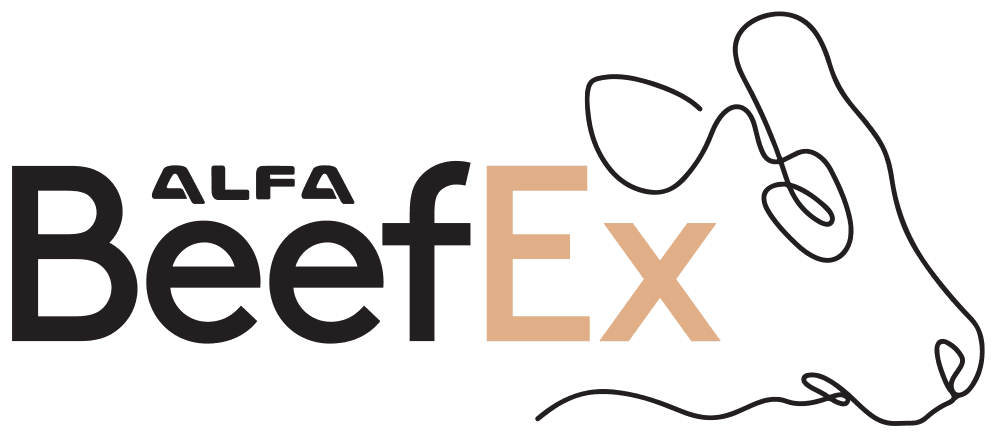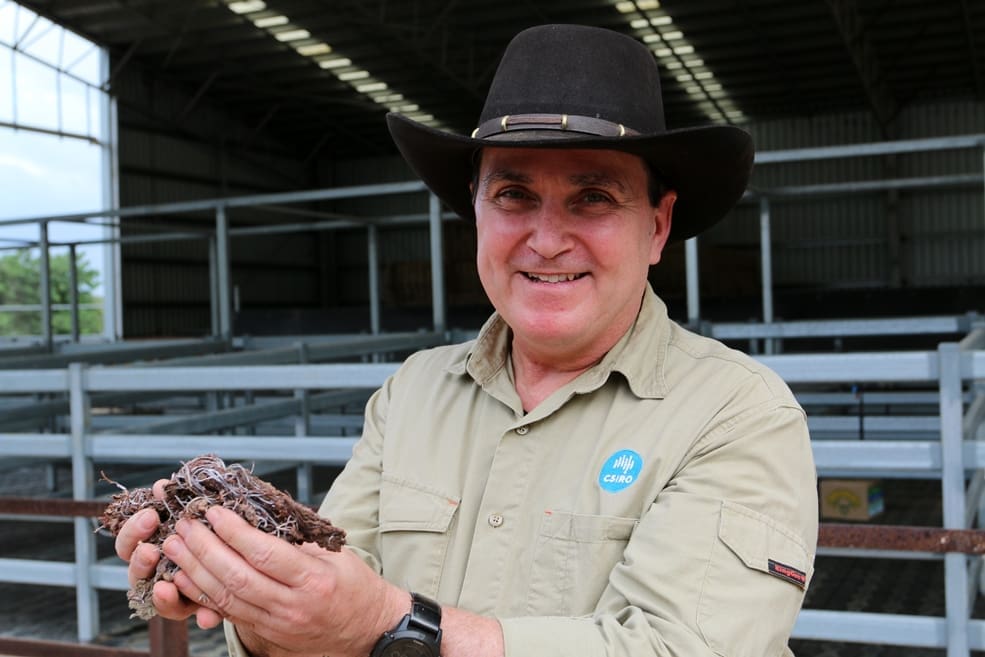 RESULTS from one of the largest studies of asparagopsis seaweed in feedlots are set to be released at BeefEx this week, demonstrating an improvement in feed conversion efficiency.
RESULTS from one of the largest studies of asparagopsis seaweed in feedlots are set to be released at BeefEx this week, demonstrating an improvement in feed conversion efficiency.
FutureFeed’s N15 commercial feedlot study focused on productivity improvements in commercial feedlot settings and recorded feed use efficiency benefits of 7.4pc.
The impact asparagopsis has on productivity is one of the big questions research is still trying to answer about the feed additive, with previous studies showing varying results. A study on Wagyu cattle last year showed a reduction in feed intake and a corresponding reduction in weight gain, while a study in a commercial feedlot on Angus cattle this year showed an increase in weight gain and normal feed intake.
It is understood that the asparagopsis treated cattle in the FutureFeed study being released this week consumed less feed than the control group, but produced the same average daily weight gain.
Conducted at the University of New England’s Tullimba Commercial Feedlot near Armidale NSW, the study consisted of 300 Angus/Shorthorn-cross steers, across 30 pens, fed a barley-based ration for 81 days, representative of Australian short-fed systems
Of the 300 head, 150 were supplementary fed Asparagopsis stabilised in canola oil (Asp-Oil) at a rate of 35mg bromoform (CHBr 3 ) per kg of dry matter intake (DMI) in their finisher ration.
The other 150 head were fed straight canola oil in their total mixed ration. FutureFeed Chief Scientist, Dr Rob Kinley, said the steers receiving the Asp-Oil experienced feed conversion efficiency improvements of 7.4pc in the finisher period diet.
“Feed expenses and cost of weight gain reduced $0.35/head/day and $0.23/kg respectively, in steers receiving Asp-Oil,” Dr Kinley said.
No negative impact on eating quality or animal health
The study also evaluated the effect of Asp-Oil on carcass and meat-eating quality, animal health, and food safety. The steers were processed at Australian Country Choice, Brisbane, and the carcases graded by a Meat Standards Australia (MSA) grader.
Comprehensive consumer sensory testing was then conducted on two different grades of meat cuts. Carcase grading, meat eating quality and food safety were not affected by Asp-Oil, and residues of asparagopsis were not detected in any food product.
“To further simulate commercial feedlot settings, we didn’t do any additional pathology sampling on the live animals during the trial. We found Asp-Oil had no negative impact on animal health and rumen function and pathology.” Dr Kinley said.
FutureFeed CEO Alex Baker said the study has confirmed, with high levels of replication and statistical power, the productivity benefits that can be achieved by supplementary feeding of asparagopsis to beef cattle in commercial feedlot settings.
“Efficiency gains as feed conversion efficiency were achieved by lower feed requirements to maintain health and growth, with no significant change in average daily weight gains, hot standard carcass weight, or carcass grading attributes, resulting in a lower cost of production,” Mr Baker said.
“Furthermore, this study has reaffirmed that there is no effect on food quality, safety, or animal welfare. In fact, consumer eating quality and preference was improved, with all attributes scoring better due to Asp-Oil fed meat samples.”
“While this research focused on productivity gains, previous research conducted by FutureFeed has shown that Asparagopsis is able to reduce methane production by up to 98pc when used at a rate of 35mg CHBr 3 /kg of dry weight of feed intake in their ration.”
“Now that we have proven the efficacy, safety and productivity benefits of Asparagopsis in Australia, we are focused on paving the way for supplying Asparagopsis to other major markets globally,” Mr Baker said.
“Our research team will be undertaking commercial and regulatory trials in Europe, Great Britain and the United States in the coming months. Beef cattle are already being prepared for a study in Scotland and also in Texas in the US.
“It’s important that we demonstrate Asparagopsis can consistently improve productivity and reduce methane emissions across various production systems globally, regardless of how many days they’re on feed, so we can achieve regulatory approval in global markets.”
The FutureFeed study reinforces the findings of a recent study conducted by Stockyard Beef using Asparagopsis fed to cattle on a 200-day feeding program.
 The full FutureFeed scientific publication is due for release shortly in the American Journal of Plant Science. FutureFeed is also hosting a webinar about at the study on October 31, any interested parties can register here.
The full FutureFeed scientific publication is due for release shortly in the American Journal of Plant Science. FutureFeed is also hosting a webinar about at the study on October 31, any interested parties can register here.


